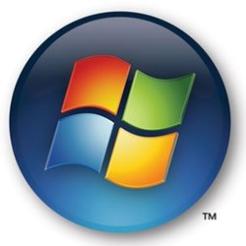John Tate wonders whether Microsoft’s new CEO can revive the company’s flagging fortunes.
Last month Microsoft announced the appointment of a new CEO, Satya Nadella. He replaces Steve Ballmer who, in turn, took over from Bill Gates, the co-founder.
This has been one of the most talked-about appointments in the IT industry. Why is that?
Largest company in the world
Well, once upon a time, Microsoft was the largest company in the world – reaching a market capitalisation of $616.3bn in December 1999. However, since Steve Ballmer took on the CEO role in January 2000 its capitalisation has fallen to just over $300bn.
Cumulative US inflation has been about 35 per cent over this time, so the real drop in capitalisation has been over 60 per cent. To add insult to injury, Apple and Google have grown steadily over this period and both are now valued at more than Microsoft.
So the industry has been debating endlessly how much of this fall is down to Steve Ballmer, and what impact a new CEO may have on the business. This is not just industry chit-chat; charities should also care about this question.
My first involvement with Microsoft was in the 1980s when I used a PC running the Microsoft DOS operating system. I also used Supercalc as a spreadsheet and WordStar as my word processor – both non-Microsoft products.
By 2000, when Ballmer took the helm, I was using a PC running Windows. I was also using Microsoft Excel and Word, Outlook for email, NT as the server operating system and Microsoft SQL as the database for our accounting system. Pretty much end-to-end Microsoft technology.
Step forward to 2014 and I still use Microsoft Office as my default. However, I also have two Gmail accounts and am increasingly using Google for ‘cloud’ spreadsheets and word processing. I have just purchased my first ever Apple computer for home use, have an Apple mobile phone, and I use Google Chrome rather than Internet Explorer as my default web browser.
So Microsoft still plays an important part in my computer use – but not the dominant role of 15 years ago.
As a measure of performance there is more to a company, of course, than just market capitalisation. Microsoft is credited by many as bringing PC technology to the masses.
Prior to Microsoft’s meteoric growth, mini and mainframe computers dominated – and there were few standards for desktop hardware or software. Microsoft, it is often argued, made this change and brought affordable devices to the masses.
However, others would suggest that the change was achieved by mastery of IT marketing – rather than technology innovation. Many of Microsoft’s products, critics contend, were second or third generation, piggybacking off the innovation of others.
So what difference might Nadella make to the future of Microsoft? He joined Microsoft in 1992, so perhaps he’s unlikely to do anything dramatic.
Minor miracle required
To regain a leadership position, Microsoft needs to reinvent its desktop and mobile offerings and, of course, its cloud capabilities. This, however, would work against many of its current income streams.
For instance, devices to browse the web don’t need a complex operating system like Windows to run the likes of Google software. If Microsoft promotes offerings in this space it could cannibalise its desktop and server-operating-system revenue.
Larger charities will find it more difficult to move away from Microsoft’s core products because much of their software needs a Windows desktop device to run correctly. However, personal IT users can switch more easily.
Unless Nadella can perform a minor miracle, charities need to be prepared for a divergence of technology and devices between the business and personal space. Unfortunately, this is likely to make technology even more complex and challenging in the next few years.
To soften this blow, I hope that Microsoft’s new CEO will focus the company more on delivering reliable and secure business products. But this will require a switch in focus from marketing to product and service delivery. It may be a step too far, even for Satya Nadella.
John Tate is a business consultant, IT adviser to CFG and a visiting lecturer at Cass Business School.









